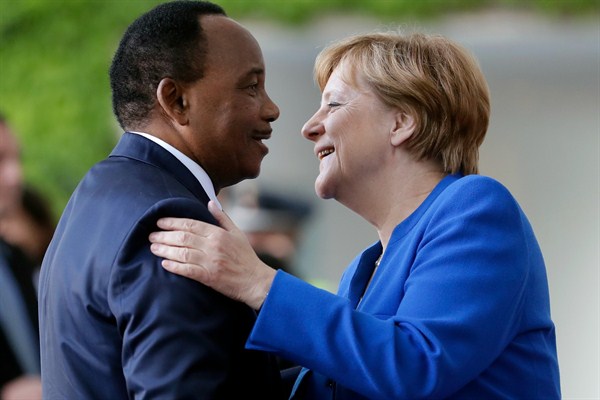Niger’s president, Mahamadou Issoufou, is a central figure in two distinct but overlapping crises: the elevated flow of migrants from Africa to Europe and the insecurity in Africa’s Sahel region. In both crises, European leaders are increasingly looking to Issoufou to implement solutions. Issoufou has used his international prominence to play up his leadership at home, which may not be as secure as it seems.
Within the migrant crisis, Niger is a key partner for European leaders who hope to both block migration and prevent it through economic development. The northern Nigerien city of Agadez is a hub for migrants coming from across West Africa, as it is a gateway to the Sahara, Libya, the Mediterranean and, ultimately, to Europe. In 2016, however, the European Union began training Nigerien security forces to intercept smugglers. By this past August, the training and the crackdown had reduced the flow of migrants through Agadez by 80 percent, according to the Nigerien government. The EU in turn is increasing its economic aid to Niger, with a $635 million package offered last December.
Niger remains an important interlocutor for Europe. On Aug. 28, heads of state and high-ranking representatives from Germany, France, Italy, Libya, Chad and Niger gathered in Paris to discuss the latest manifestations of the migration crisis. African leaders such as Issoufou are signing on to Europe’s latest request: the establishment of registration and screening centers within Africa, with the aim of separating refugees from “illegal” migrants before anyone reaches Europe. More development aid has been promised to those African countries that comply.

